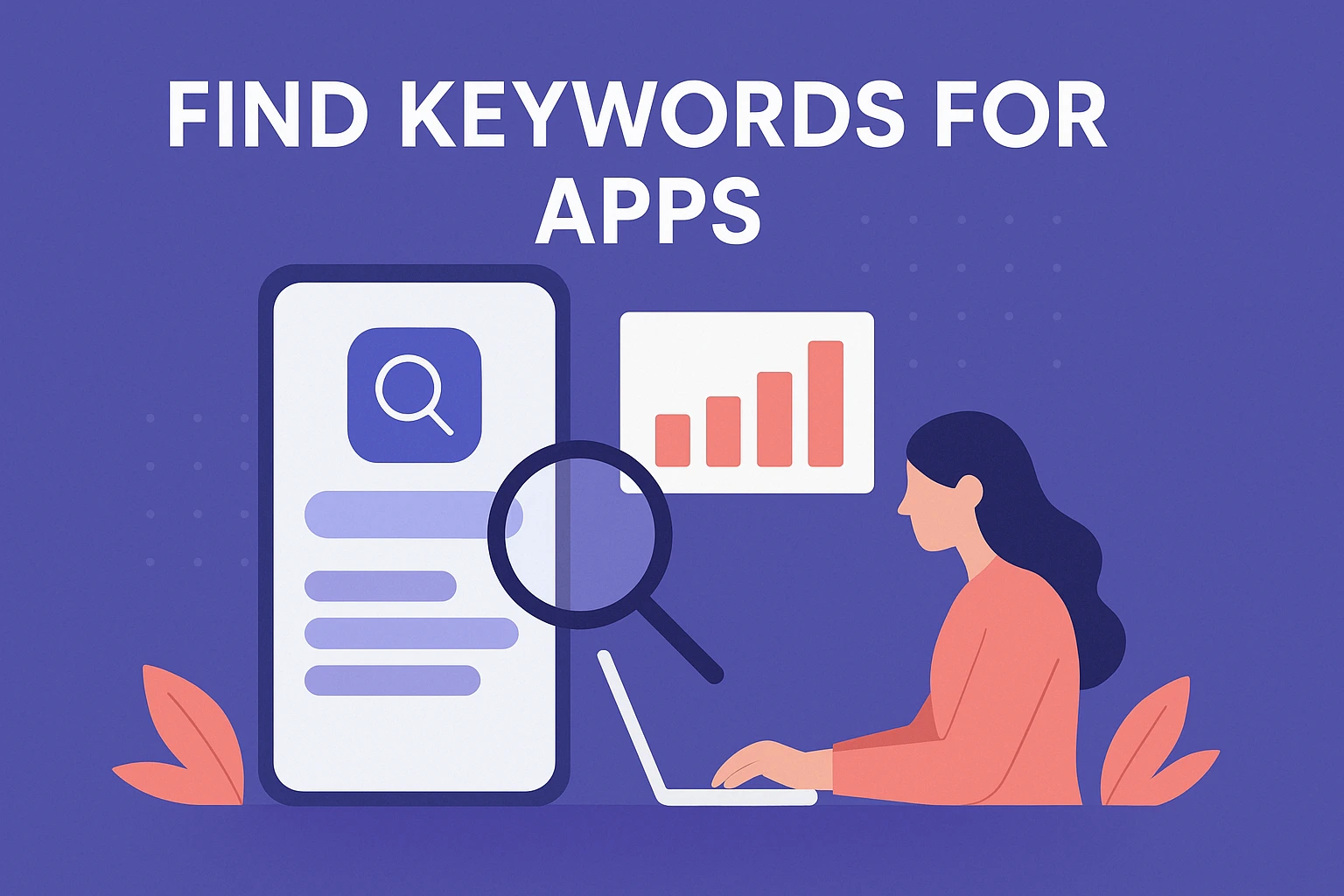If you’re looking to find keywords for apps, you’re already on the right path toward increasing your app’s visibility and downloads. Keyword research plays a critical role in ASO keyword research and app store SEO, just as much as it does in traditional web SEO. Whether you’re optimizing for the Apple App Store or Google Play Store, understanding how to uncover high-impact keywords can make a significant difference in your app’s ranking and discoverability.
Why It’s Important to Find Keywords for Apps
To find keywords for apps is to discover how users think and search. Keywords are the bridge between what users are typing into the search bar and the solutions your app provides. With a refined strategy that incorporates app store SEO, developers and marketers can enhance app visibility, attract the right audience, and ultimately boost downloads. Unlike web SEO, ASO focuses on mobile-specific behavior and trends.
Steps to Effectively Find Keywords for Apps
Let’s break down the process of discovering the best-performing keywords for your app.
1. Understand Your Target Audience
Before you dive into tools, think about your users. What are their pain points? What problems does your app solve? The foundation of any ASO keyword research process begins with empathy and understanding user intent.
2. Analyze Competitor Keywords
To find keywords for apps, look at what your competitors are ranking for. Use ASO tools to analyze high-ranking apps in your niche. Examine their app titles, descriptions, and reviews to identify repeating terms.
3. Use Keyword Research Tools
Several tools can help you find high-performing keywords for ASO. Some popular ones include:
-
Google Play Console (for Android-specific insights)
These tools help you identify keyword volume, difficulty, trends, and ranking performance, making your ASO keyword research more data-driven.
Best Practices for App Store SEO and Keyword Placement
Optimize Title and Subtitle
Your app title carries the most weight in app store algorithms. Make sure to find keywords for apps that are not only relevant but also have high search volume and low competition. Include your top keyword in the title and support keywords in the subtitle.
Use Keywords in Description (Google Play Only)
Unlike Apple’s App Store, Google Play scans the description for keywords. Naturally integrate your keywords here for better app store SEO. But avoid keyword stuffing—write for users, not just algorithms.
Leverage the Keyword Field (Apple Only)
Apple gives you a 100-character keyword field. Use this to insert all relevant keywords (comma-separated, no spaces). This is where ASO strategy really kicks in.
Common Mistakes to Avoid in ASO Keyword Research
Overusing Keywords
Even though your goal is to find keywords for apps, overloading your metadata with keywords can hurt your rankings. Focus on quality, not quantity.
Ignoring Localization
Localizing your app store listing with keywords in regional languages can significantly expand your app’s reach. Users often search in their native tongue, and localized keyword optimization is a major plus in app store SEO.
Not Updating Keywords Regularly
Trends change. Your ASO keyword research should be an ongoing process. Track your app’s performance and refresh your keyword list every few weeks based on analytics.
Tools to Help You Find Keywords for Apps
| Tool Name | Features | Platforms Supported |
|---|---|---|
| AppTweak | Keyword tracking, competition analysis | iOS, Android |
| Sensor Tower | ASO audit, keyword intelligence | iOS, Android |
| Mobile Action | Market insights, keyword suggestions | iOS, Android |
| AppFollow | Review monitoring, keyword optimization | iOS, Android |
| Keyword Tool | Long-tail keyword suggestions | iOS, Android |
FAQ – Find Keywords for Apps
1. How can I find keywords for apps for free?
You can use free versions of tools like Keyword Tool or explore Google Play Console’s organic search term data to start your ASO keyword research journey.
2. How often should I update my keywords?
Ideally, update them every 4–6 weeks. Keep an eye on performance metrics like impressions, installs, and conversion rates.
3. Is ASO only about keywords?
No, ASO also involves visuals (icons, screenshots), ratings, reviews, and user engagement. But finding keywords for apps remains a key pillar.
4. Can the same keyword work on both iOS and Android?
Sometimes. But remember, the two platforms have different algorithms. Always tailor your app store SEO to each platform’s behavior.
Conclusion
To find keywords for apps effectively, you need the right tools, competitive insight, and a deep understanding of your users. Integrating these keywords naturally into your metadata and content can transform your app’s visibility. With consistent monitoring and updates, your ASO keyword research efforts will yield long-term benefits. In the crowded mobile marketplace, investing in strategic app store SEO is not just smart—it’s essential.

